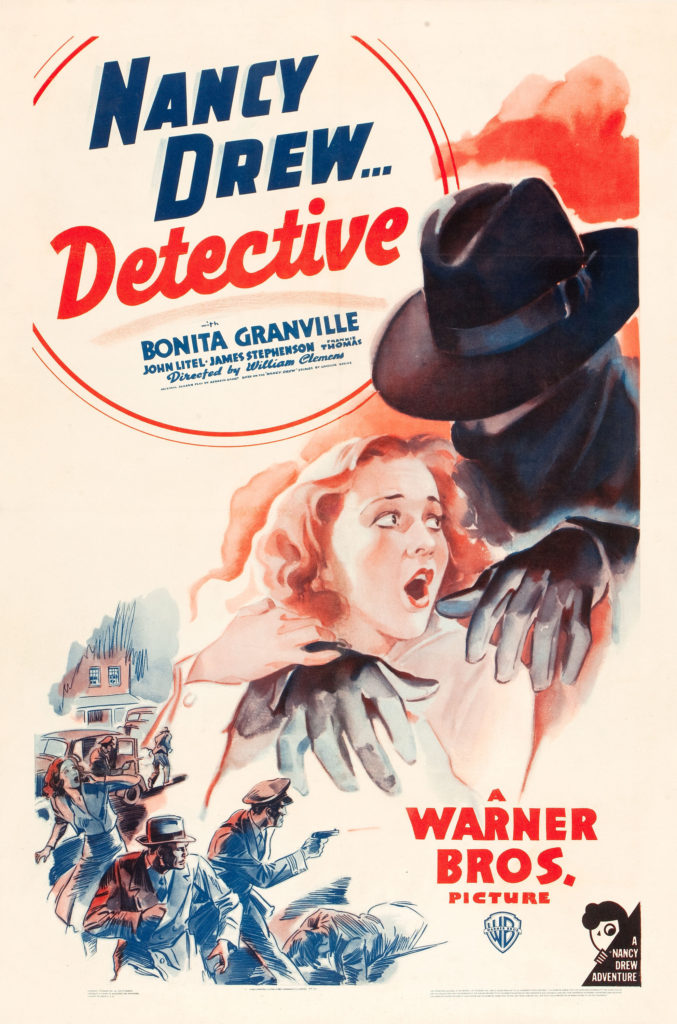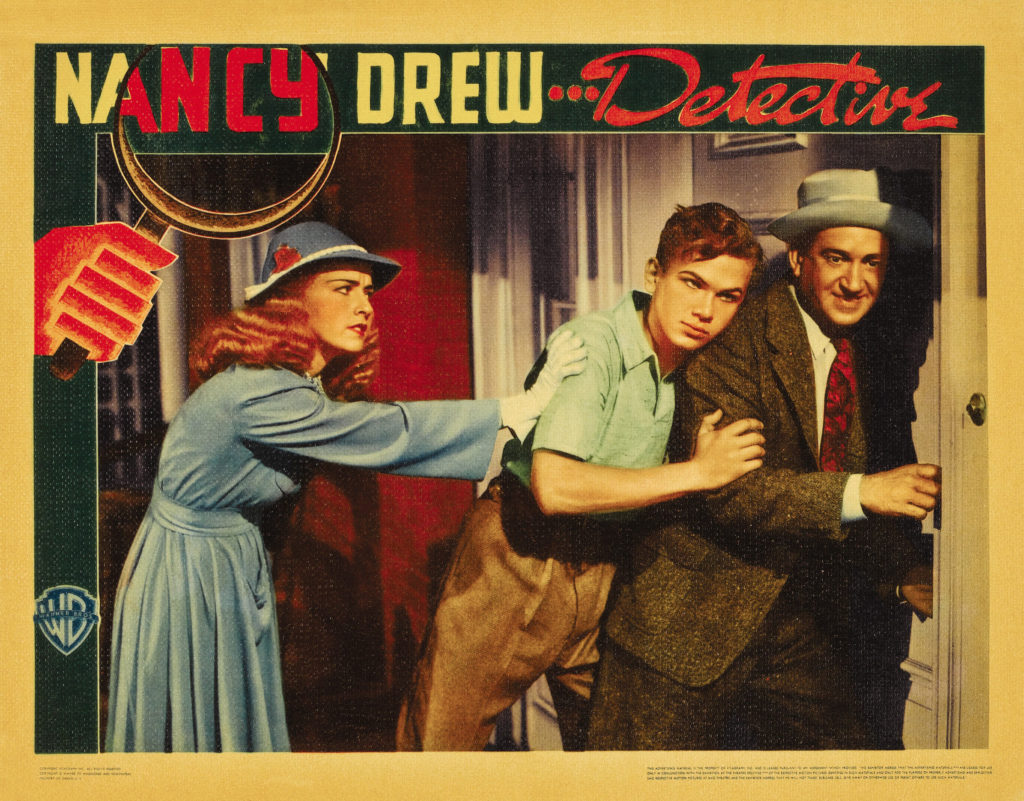The first Nancy Drew feature establishes the locale as River Heights, Missouri, where Nancy goes to school at the Brinwood School for Girls. When the elderly dowager who is going to endow the school with a gift (for what the girls want, a swimming pool!) disappears, Nancy (Bonita Granville) is sure it’s a kidnapping. A series of incidents which follows proves that Nancy is on the right track, so she and devoted friend Ted Nickerson (Frankie Thomas) follow the critical clue — a pigeon — to the kidnappers’ lair.

This entertaining feature establishes the patterns that follow through the next three adventures. Nancy is always ready for action, although she isn’t really sure where it will lead. She depends on Ted a great deal, and it is his hobby (ham radio operation) which saves them in this first film. Ted is a tricky role; Nancy doesn’t consider him quite boyfriend material, yet runs to him whenever she needs help or finds herself in trouble. Ted’s devotion to Nancy is palpable, yet he seems to accept things the way they are. Ted is also used for comic relief, whether it’s ruining her flower garden with a flying tackle, dropping things on his own feet or dressing as a nurse to help Nancy to sneak into the kidnappers’ hideaway.
While Nancy remains the focal character, this entry and the films that followed definitely lessened Nancy’s spirited individuality, bringing Ted firmly into the proceedings to provide her with security and counsel. It seems as though the studio had no faith that their sixteen-year old heroine would be strong enough, smart enough or sexy enough to sustain the movie it was building around her, and required a male (Ted) to carry the load when danger arose.

The central mystery itself is rather obvious, although the use of pigeons is intriguing. The mystery doesn’t really hold up to the conclusion, but the mysteries in these types of movies is always less important then the characters and their methodologies. Nancy Drew — Detective provides a solid debut the character and her milieu. Bonita Granville was a splendid choice for the lead, though critics felt she could have been more bookish and less cosmopolitan.
